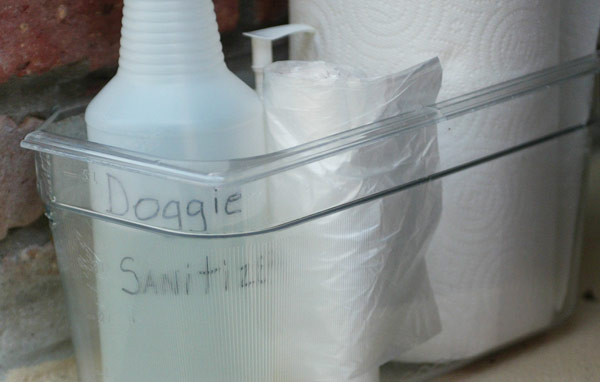
VERO BEACH — At least one restaurateur is happy about the prospect of finally, legally, being able to offer dog-friendly dining at her restaurant – if the Vero Beach City Council approves next month.
Olske Forbes, owner of the Greenhouse Café on 13th Avenue in downtown Vero Beach, said she is thrilled that the Vero Beach City Council has decided to move forward and send the proposed doggy dining ordinance to a public hearing.
She has been allowing diners to bring their four-legged friends to join them in the courtyard, despite the fact the city has not yet passed an ordinance to permit it. However, Forbes said, she has been following all the guidelines the state handed down regarding pet-friendly dining.
She keeps a container out in the courtyard stocked with hand sanitizer, a Clorox bleach mix in a large spray bottle, doggy bags for accidents, and paper towels – all in keeping with the state’s regulations for pet-friendly dining.
The Vero Beach City Council unanimously supported sending the ordinance to a public hearing and scheduled that hearing for Aug. 17.
“It’s strictly voluntary,” Mayor Kevin Sawnick said when the ordinance was presented to the council on Thursday, explaining that only those restaurants that wish to offer doggy dining would have to follow the more stringent sanitation rules.
At a prior council meeting, Councilman Ken Daige likened the proposed ordinance to another “tool” in a business’s “toolbox” in attracting new customers.
Though the council appears to be receptive, not all members of the business community are convinced that the ordinance is the right way to go.
Oceanside Business Association President Al Benkert said that, while he understands what Forbes is trying to accomplish, he would rather the council not pass the ordinance and simply maintain the status quo.
“If we leave everything the way it is,” Benkert said, “the city is out of the ballgame.”
He explained that right now, the city is not obligated to enforce the state’s law prohibiting animals from dining areas. If the city were to pass an ordinance allowing pet-friendly dining, the city would then become responsible for enforcing the state’s regulations.
The city’s code enforcement would the primary enforcers of the rules.
“I thought it was a good idea,” Benkert said of the proposed doggy-dining ordinance, until he realized that the city would then have to enforce the rules.
He said that the ordinance could have the opposite effect of helping businesses be pet-friendly.
Benkert explained that, as is, the only ones who would take issue with a restaurant allowing dogs in their outdoor dining areas would be the Health Department’s inspectors. Those inspectors would have to be either alerted to a business allowing dogs in the dining area or independently discover the practice during an inspection.
Other restaurants could be allowing pet-friendly dining under the radar but could have to stop if an ordinance is enacted and they don’t follow the rules.
To date, Forbes said she has not received a single citation from the Health Department, only advice from an inspector to get the city to pass a pet-friendly dining ordinance.
“I’m marching on,” Forbes said, adding that she will not be turning away guests who bring their pooches to dine, even as the fate of the ordinance remains unknown. “I trust this will go through in six weeks.”






